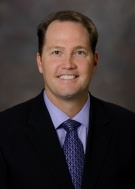Male Infertility in Portland, Oregon (OR)
Treatment for male infertility depends on the underlying cause which
stem from problems with sperm formation, the transport of sperm to the
ejaculate, or the concentration of sperm in the semen. After diagnosing
the probable causes of your infertility, your doctor can create a
treatment plan that is right for you.
Your doctor may recommend
some lifestyle changes to enhance your fertility. Quitting smoking,
decreasing alcohol intake, reducing stress, eating healthy, losing
weight and exercising regularly are all recommendations your doctor may
make to improve sperm count and quality. Beyond that, about half of male
infertility cases can be corrected using medical therapies or surgery.
Assisted reproduction techniques (ART) can also help a couple conceive.
Medical Therapies for Infertility
Testosterone replacement therapy: Medications to correct imbalances in sperm production can correct a low sperm count or absence of sperm. Testosterone replacement therapy (TRT) is one therapy where a man is given injection of testosterone to correct a testosterone deficiency.Steroid therapy: As a result of surgery (such as a vasectomy), some men develop antibodies that attack their sperm cells. Steroid therapy for three to six months can temporarily alleviate the condition and may enable to a man to get his partner pregnant.
Retrograde ejaculation treatment: Retrograde ejaculation is a condition whereby sperm enter the bladder instead of passing into the ejaculate. Retrograde ejaculate treatment may include medications like antihistamines and tricyclic antidepressants which help keep the bladder closed during ejaculation.
Surgical Treatments for Male Infertility
Varicolwctomy: An increase in temperature in the testicles can reduce sperm production. Your doctor may perform a varicolectomy to remove large veins in the scrotum. This procedure may improve semen quality in up to 70 percent of patients, as soon as 3 months after surgery.Transurethral resectioning of the ejaculatory ducts: Surgery to remove blockages that affect semen flow may involve removing part of the prostate gland to allow sperm to flow into the urethra. This may be effective treatment in up to 50 percent of infertile men.
Vasectomy reversal: If you have had a vasectomy, your doctor can perform a vasectomy reversal to reconnect the vas deferens tubes which were previously severed during your vasectomy. This procedure aims to restore fertility by allowing sperm to re-enter your ejaculate once again.
Sperm retrieval: In cases where it is not possible to correct the flow of sperm or increase sperm count, sperm can be retrieved from either the testicle, vas deferens, or in the case of retrograde ejaculate, from the bladder. Sperm can then be used in various assisted reproductive techniques to help a couple conceive.
Your doctor will help you determine which male infertility treatments are right for you.
About Jason Hedges, MD, Ph.D.
Dr. Hedges is committed to making men's sexual health needs easily accessible, efficient, and effective. He acknowledges that infertility and erectile dysfunction are by nature extremely personal, and can drastically affect a person's quality of life.
Featured Specialist for Male Infertility in Portland, OR
Call Now: (503) 836-7942 3303 SW Bond Ave. Portland, OR 97239-4501
Request Appointment
We encourage you to call if you have questions or wish to setup an appointment.
More Services from Jason Hedges, MD, Ph.D.


